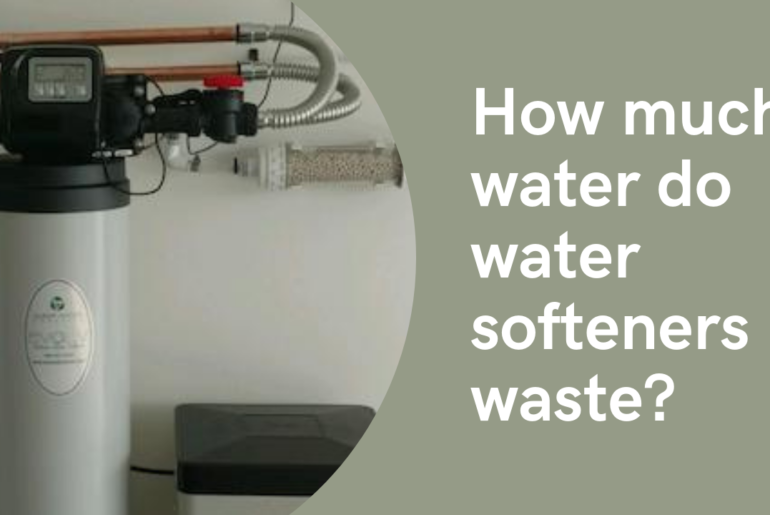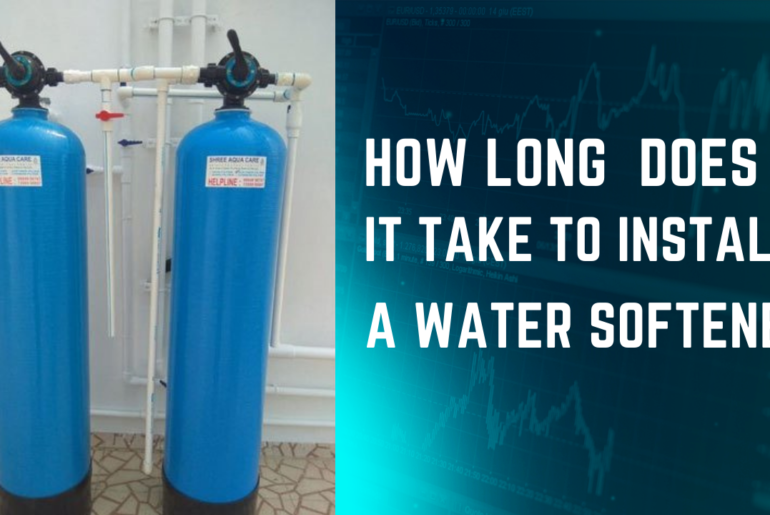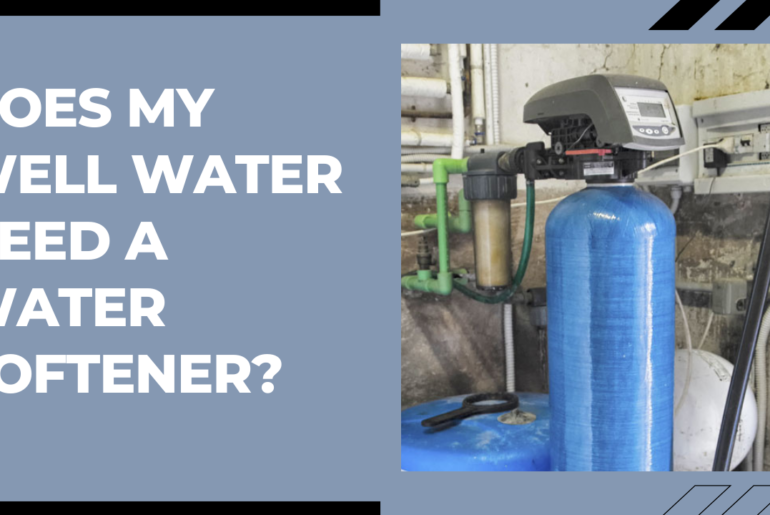When choosing a water softener for your home, there are several key factors to consider as you evaluate the many makes and models available today.
These fundamental considerations include the hardness level of your home’s water, the size and composite water use of your household, your budget, and the technical functionality of specific water softener systems.
There are hundreds of water softeners on today’s market, and the right one for your home will depend on a number of unique circumstances.
When it comes to water hardness, levels are typically measured in grains per gallon (GPG). The U.S. Geological Survey reports that water is considered “hard” if it contains more than 60 GPG. “Very hard” water is anything over 180 GPG.
The first step in choosing the best water softener for your home is to have your water tested by a professional to determine the hardness level. This will give you a better idea of how much of a problem water hardness is in your area and what kind of system you’ll need to effectively tackle the issue.
The next step is to determine the size of the water softener you need. This is directly related to the hardness of your water and the number of people in your household.
Do I need a water softener?
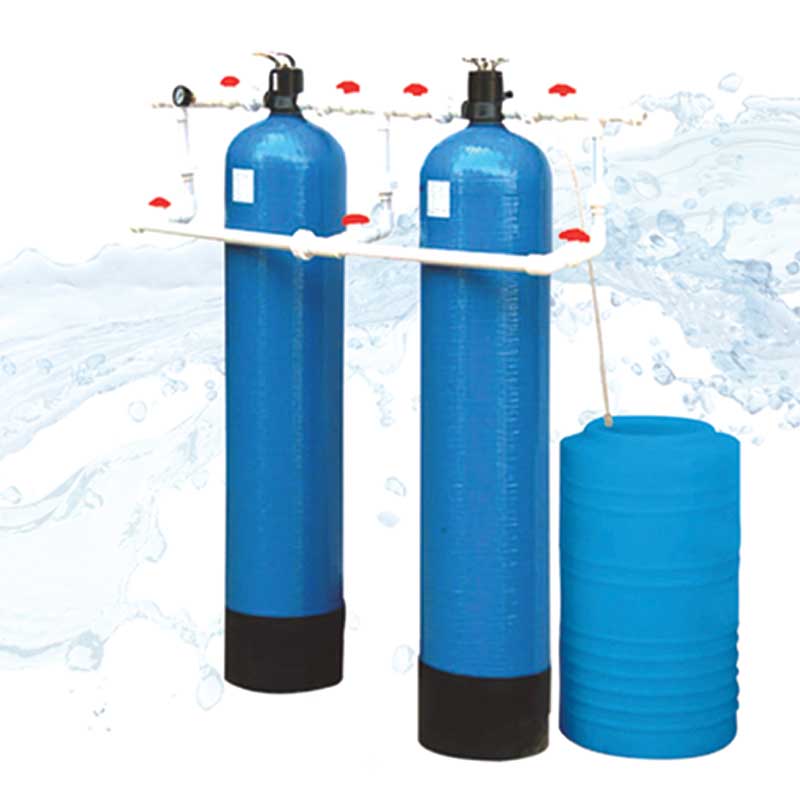
The answer to this question depends on how much of a problem water hardness is in your area. If you live in an area with hard water, a water softener can be a worthwhile investment. Water hardness is caused by high levels of minerals such as calcium and magnesium in the water. These minerals can cause a number of problems, including:
Soap scum:
Hard water makes it difficult for soap to lather, which can leave behind a residue on your skin and clothing.
scale buildup:
Over time, the minerals in hard water can build up on fixtures and appliances, including faucets, showerheads and dishwashers. This scale buildup can decrease the efficiency of your appliances and shorten their lifespan.
Dry skin and hair:
Hard water can dry out your skin and hair, causing it to feel dull and lifeless.
If you’re experiencing any of these problems, a water softener may be the solution. By removing the minerals from hard water, a water softener can help you avoid these problems and improve the quality of your water.
How much water does my family use?
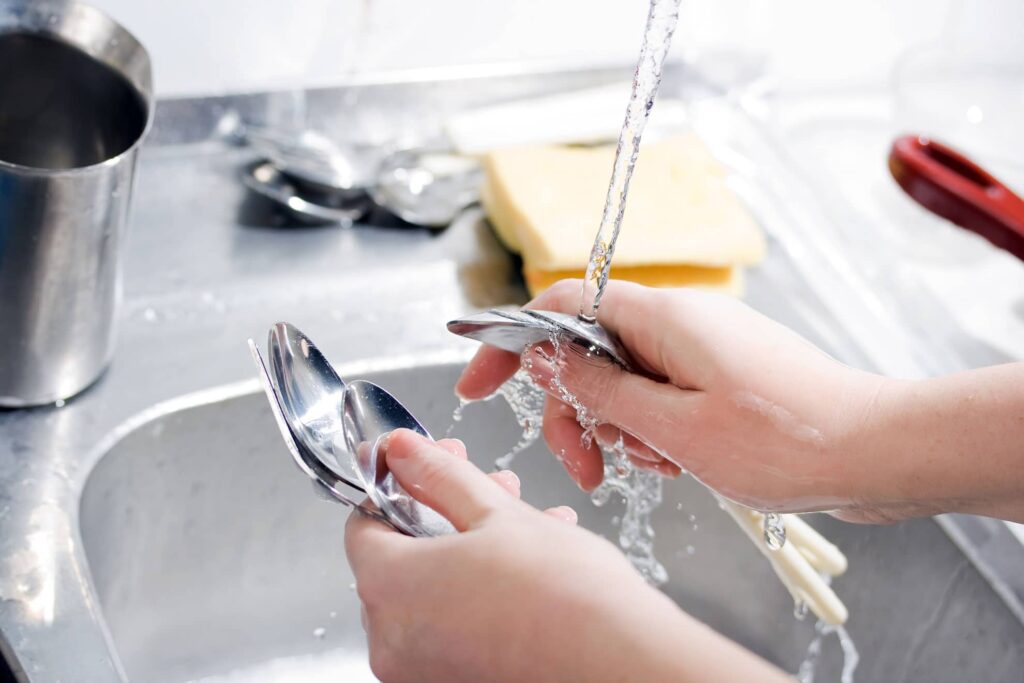
The average family uses 80-100 gallons of water per day, but this number can vary depending on the size of your household and your water usage habits. To determine how much water your family uses, track your water usage for a week and divide it by seven. This will give you a good estimate of your daily water usage.
Once you know how much water your family uses, you can choose a water softener that’s capable of handling that amount. Most water softeners are rated by how many gallons of water they can process in a day. If you choose a water softener that’s too small for your household, it won’t be able to keep up with your water usage and the mineral buildup in your water will continue.
Consider Different Types of Water Softeners

The different types of water softeners are:
- Salt-based ion exchange softeners
- Salt-free water conditioners
- Dual tank water softeners
- Electronic or magnetic descalers
Salt-Based Ion Exchange Softeners
Salt-based ion exchange softeners are the most common type of water softener. They work by exchanging the minerals in hard water for sodium ions. As the water passes through the softener, the minerals are attracted to the sodium ions and attach to them. The sodium ions are then flushed out of the system, leaving behind soft water.
Salt-based ion exchange softeners require regular maintenance to keep them running properly. The tank will need to be refilled with salt periodically, and the system will need to be flushed to remove any buildup of minerals.
Salt-Free Water Conditioners
Salt-free water conditioners don’t actually remove the minerals from hard water. Instead, they prevent the minerals from attaching to surfaces and causing scale buildup.
Salt-free water conditioners are a good option if you’re looking for an alternative to salt-based water softeners. They don’t require any maintenance and they’re environmentally friendly. However, they’re not as effective at preventing scale buildup as salt-based water softeners.
Dual Tank Water Softeners
Dual tank water softeners have two tanks, instead of one. This allows them to continue softening water even while the other tank is being regenerated.
Dual tank water softeners are a good option for large families or households with high water usage. They’re also a good choice if you have hard water and live in an area with frequent power outages.
Electronic or Magnetic Descalers
Electronic or magnetic descalers work by sending electrical currents or magnetic fields through the pipes to break up the mineral deposits.
Electronic or magnetic descalers are a good option if you have a small household or live in an area with soft water. They’re also a good choice if you’re looking for an alternative to salt-based water softeners.
However, electronic or magnetic descalers don’t remove the minerals from your water. They just prevent them from attaching to surfaces and causing scale buildup.
Understand Water Softener Size & Capacity Needed
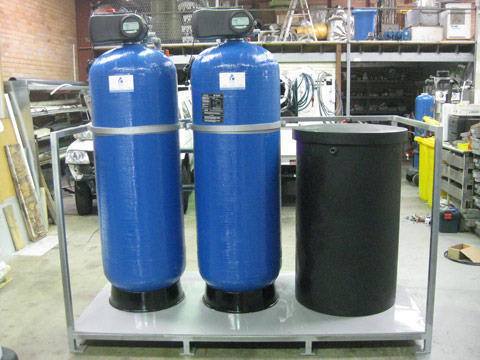
The size of your water softener is important because it determines how much water it can soften in a day. Most water softeners are rated by how many gallons of water they can process in a day.
To determine the size of water softener you need, first determine the daily water usage for your household. You can do this by tracking your water usage for a week and divide it by seven. Once you know your daily water usage, you can choose a water softener that’s capable of handling that amount.
If you have a large household or high water usage, you may need a water softener with a higher capacity. Water softeners with a higher capacity cost more, but they’re worth the investment if you need them.
What’s my budget?
Water softeners can range in price from $400 to $2,000 or more. The cost of a water softener will depend on the size, type and features of the unit. As you compare different models, be sure to consider the cost of installation, maintenance and replacement parts.
You can save money on your water softener by doing some of the work yourself. For example, you can install a salt-based water softener yourself for around $200. And, if you have a well, you may be able to install a whole house water filter yourself for around $500.
Space Available For Installation:
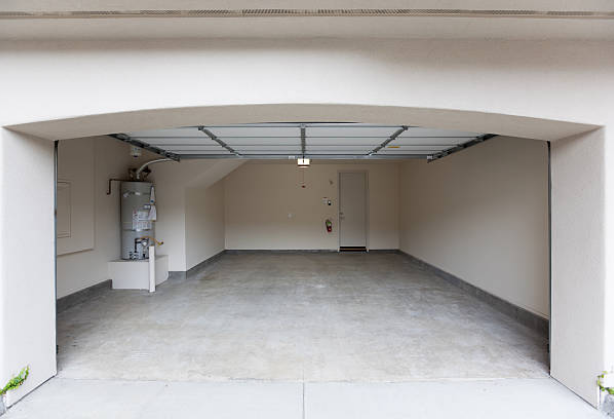
Water softeners can range in size from small, countertop units to large, whole-house systems. The size of the unit you need will depend on the size of your household and your water usage.
Smaller households or those with low water usage can get by with a small, countertop unit. These units typically cost between $400 and $600.
Larger households or those with high water usage will need a larger, whole-house unit. These units typically cost between $1,000 and $2,000.
You’ll also need to consider the space available for installation when choosing a water softener. Some units can be installed under a sink, while others must be installed in a garage or basement.
Be sure to measure the space available for installation before you purchase a water softener. This will ensure that you choose a unit that will fit in the available space.
Installation Requirements
Some water softeners can be installed by the homeowner, while others must be installed by a professional. Installation typically costs between $200 and $500.
If you’re handy, you may be able to install a salt-based water softener yourself. These units typically cost between $400 and $600. But, if you’re not sure how to install a water softener, it’s best to hire a professional.
Conclusion:
When choosing a water softener, it’s important to consider the size, type and features of the unit. You’ll also need to consider the cost of installation, maintenance and replacement parts. Be sure to measure the space available for installation and choose a unit that will fit in the available space.
Frequently Asked Questions:
How do I know if I need a water softener?
If you live in an area with hard water, you may need a water softener. Hard water is water that contains high levels of minerals, such as calcium and magnesium. These minerals can cause scale buildup on fixtures and appliances, and make it difficult to get laundry clean. You may also notice that your skin feels dry after showering in hard water.
If you’re not sure if you have hard water, you can test it yourself with a water hardness test kit. These kits are available at most hardware stores.
How often do I need to change the salt in my water softener?
The frequency with which you need to change the salt in your water softener will depend on the type of unit you have and the hardness of your water.
If you have a salt-based water softener, you’ll need to add salt to the unit on a regular basis. The frequency with which you need to add salt will depend on the hardness of your water. For example, if you have very hard water, you may need to add salt every week.
If you have a maintenance-free water softener, you won’t need to add salt to the unit. These units use an ion exchange process to remove minerals from the water, and they don’t require salt.
Do I need a water softener if I have a water filter?
No, you don’t need a water softener if you have a water filter. Water filters remove impurities from the water, such as dirt, sand and rust. They do not remove minerals, such as calcium and magnesium.
So, if you have hard water, you’ll need a water softener to remove the minerals from the water. If you have soft water, you won’t need a water softener.
How many grain water softeners do you need?
The number of grains you need in a water softener will depend on the hardness of your water. For example, if you have very hard water, you may need a water softener with 32,000 grains.
Water softeners are rated by the number of grains they can remove from the water. The higher the grain rating, the more expensive the unit will be. But, the higher the grain rating, the more effective the unit will be at removing minerals from the water.
What is the number 1 rated water softener?
There is no “number 1 rated” water softener. Water softeners are rated by the number of grains they can remove from the water. The higher the grain rating, the more expensive the unit will be. But, the higher the grain rating, the more effective the unit will be at removing minerals from the water.
So, if you have hard water, you’ll need a water softener with a high grain rating. If you have soft water, you won’t need a water softener.
What is the best water softener for well water?
The best water softener for well water is a salt-based water softener. These units remove minerals from the water by exchanging them with sodium ions.
Salt-based water softeners are the most effective type of water softener, and they’re the most popular type of water softener on the market. However, they do require some maintenance, such as adding salt to the unit on a regular basis.
Please note: CharlieTrotters.com is reader supported. This page may contain affiliate links. If you buy a product or service through such a link we earn a commission at no additional cost to you.

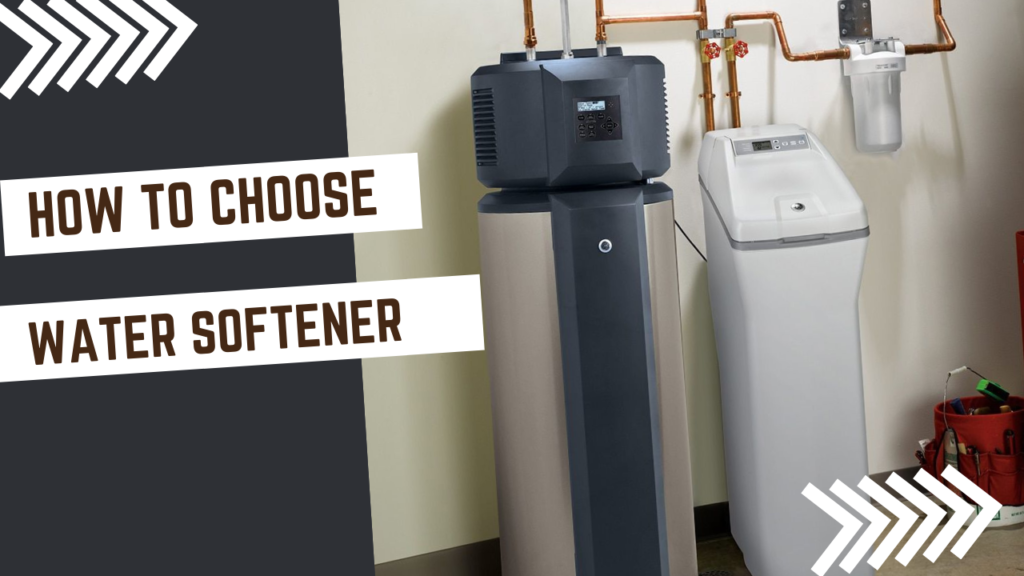
![10 Best Water Softener Resin [2022] | Top Picks Reviewed Best Water Softener Resin [2020]](https://www.charlietrotters.com/wp-content/uploads/2020/09/best-water-softener-resin.jpg)
![10 Best Water Softeners Reviews [2022] – Top Picks & Buyer’s Guide best-water-softeners](https://www.charlietrotters.com/wp-content/uploads/2019/09/best-water-softeners.jpg)
![Best Good Housekeeping Water Softener Reviews [Top 3 in 2022] Best Good Housekeeping Water Softener Reviews](https://www.charlietrotters.com/wp-content/uploads/2022/02/Purple-Orange-Gadget-Review-2022-Youtube-Thumbnail-1-770x515.png)
